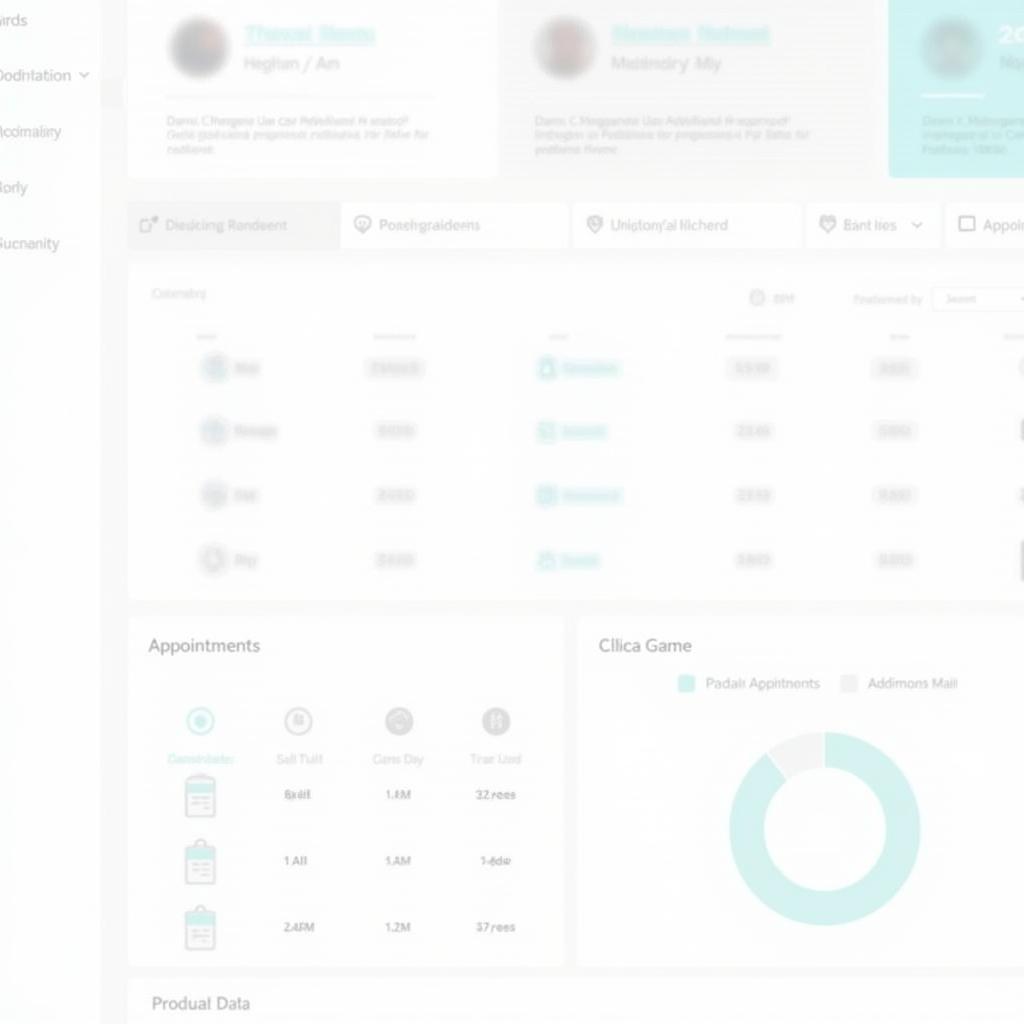Care Coordinator Tools are revolutionizing how healthcare professionals manage patient care. These powerful software solutions are designed to streamline workflows, improve communication, and ultimately enhance patient outcomes. From scheduling appointments to tracking medication adherence, these tools offer a centralized platform for managing the complexities of patient care.
Understanding the Power of Care Coordinator Tools
Care coordinator tools offer a wide range of features designed to address the challenges faced by healthcare professionals daily. These tools are essential for managing increasingly complex patient cases and ensuring that every individual receives the best possible care. They help bridge the gap between different healthcare providers, ensuring everyone is on the same page regarding patient treatment plans.
Key Features and Benefits of Care Coordinator Tools
- Centralized Patient Information: Access all relevant patient data in one place, including medical history, medications, appointments, and care plans. This eliminates the need to search through multiple systems, saving valuable time and reducing the risk of errors.
- Improved Communication: Facilitate seamless communication between care team members, patients, and family members. Secure messaging, automated reminders, and telehealth capabilities ensure everyone stays informed and connected.
- Streamlined Workflows: Automate routine tasks like appointment scheduling, medication refills, and care plan updates. This frees up care coordinators to focus on more complex aspects of patient care.
- Enhanced Care Coordination: Track patient progress, identify potential risks, and intervene proactively. This leads to improved patient outcomes and reduces the likelihood of hospital readmissions.
- Data-Driven Insights: Generate reports and analyze data to identify trends and areas for improvement in care delivery. This information can be used to optimize workflows and enhance the overall quality of care.
 Care Coordinator Software Dashboard
Care Coordinator Software Dashboard
Choosing the Right Care Coordinator Tool
Selecting the appropriate care coordinator tool is crucial for maximizing its benefits. Consider the specific needs of your organization and patient population. Factors to consider include the size of your team, the types of patients you serve, and your budget.
What to Look for in a Care Coordinator Tool
- User-Friendliness: The software should be intuitive and easy to navigate, even for non-technical users. A complex interface can hinder adoption and reduce efficiency.
- Customization: The tool should be adaptable to your specific workflows and processes. Look for features that allow you to tailor the software to your unique needs.
- Integration: Seamless integration with existing EHR systems and other healthcare technologies is crucial for data sharing and interoperability.
- Security and Compliance: The software must adhere to HIPAA regulations and other relevant security standards to protect sensitive patient information.
- Scalability: Choose a tool that can grow with your organization. As your patient population expands, the software should be able to accommodate the increased demand.
“Effective care coordination relies heavily on efficient communication and access to comprehensive patient data,” says Dr. Emily Carter, a leading expert in healthcare technology. “The right tools can empower care coordinators to deliver truly patient-centered care.”
Maximizing the Impact of Care Coordinator Tools
Implementing care coordinator tools requires careful planning and training. Ensure that all team members understand how to use the software effectively and are comfortable with the new workflows.
Best Practices for Implementing Care Coordinator Tools
- Thorough Training: Provide comprehensive training to all staff members who will be using the software. This should include hands-on practice and ongoing support.
- Clear Communication: Communicate the benefits of the new tools to the entire team. Address any concerns and ensure everyone understands the rationale for the change.
- Ongoing Evaluation: Regularly assess the effectiveness of the tools and make adjustments as needed. Gather feedback from users and identify areas for improvement.
“Investing in care coordinator tools is an investment in the future of healthcare,” adds Dr. Michael Davis, a seasoned healthcare administrator. “These tools not only improve efficiency but also enhance the quality of care and patient satisfaction.”
Conclusion
Care coordinator tools are essential for navigating the complexities of modern healthcare. By streamlining workflows, improving communication, and providing data-driven insights, these tools empower care coordinators to deliver the best possible care. Choosing the right tools and implementing them effectively can significantly enhance patient outcomes and transform the way healthcare is delivered. Investing in these tools is a crucial step toward building a more efficient, patient-centered healthcare system.
FAQ
- What are the main benefits of using care coordinator tools?
- How do care coordinator tools improve communication?
- What are the key features to look for in a care coordinator tool?
- How can I ensure successful implementation of these tools?
- Are care coordinator tools HIPAA compliant?
- How can these tools help reduce hospital readmissions?
- What is the cost of implementing care coordinator tools?
When you need support, please contact WhatsApp: +1(641)206-8880, Email: [email protected] or address 910 Cedar Lane, Chicago, IL 60605, USA. We have a 24/7 customer service team.

Leave a Reply